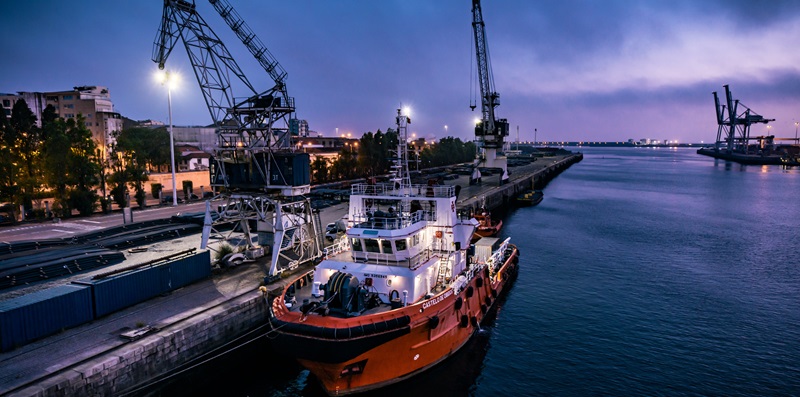The maritime industry has witnessed a rapid adoption of Inmarsat Fleet Secure, a cutting-edge solution that offers comprehensive protection against cyber threats. Leading shipping companies and vessel operators have recognized the importance of safeguarding their digital assets and have turned to Inmarsat Fleet Secure for reliable cybersecurity measures.
Overview of Inmarsat Fleet Secure
Inmarsat Fleet Secure is a cloud-based solution designed to detect and respond to cyber threats in real-time. Leveraging advanced analytics and machine learning capabilities, it ensures proactive monitoring and rapid intervention against potential attacks. By providing seamless security across all levels, from the bridge to the engine room, this solution guarantees robust protection against a wide range of cyber threats, including malware, ransomware, and phishing attacks.
End-to-end Protection Against Cyber Threats
Inmarsat Fleet Secure offers end-to-end protection, covering every crucial aspect of a ship’s operations. From critical communication systems on the bridge to vital machinery in the engine room, this solution fortifies all digital aspects of a vessel’s infrastructure. By preventing, detecting, and responding to cyber threats, it ensures the uninterrupted functioning of essential systems, enhancing the safety and reliability of maritime operations.
Enabling Digital Transformation in the Maritime Industry
In addition to enhancing cybersecurity, Inmarsat Fleet Secure serves as a secure and reliable platform for digital communication and data exchange. By leveraging the latest digital technologies, it empowers ship operators to optimize their operational efficiency and reduce costs. Applications such as remote monitoring and diagnostics, predictive maintenance, and real-time data analytics are made possible through this solution, enabling vessels to operate at peak performance levels.
Ensuring Compliance with Cybersecurity Regulations and Standards
The maritime industry is subject to stringent regulations concerning cybersecurity. Inmarsat Fleet Secure plays a crucial role in helping ship operators meet these requirements, particularly those outlined in the International Maritime Organization’s (IMO) Guidelines on Maritime Cyber Risk Management. By adhering to these guidelines, vessels can demonstrate their commitment to cybersecurity and safeguard their operations against potential threats.
Comprehensive Security Features
Inmarsat Fleet Secure incorporates a wide array of robust security features to provide comprehensive protection. These features include advanced firewalls, intrusion detection and prevention systems, and secure remote access controls. By implementing these security measures, the solution effectively mitigates threats posed by unauthorized access attempts, ensuring the integrity of a vessel’s digital infrastructure.
Partnership with Cybersecurity Companies and Industry Associations
Recognizing the collaborative nature of cybersecurity, Inmarsat has forged partnerships with various cybersecurity companies and industry associations. These partnerships aim to promote best practices in cybersecurity and raise awareness about the critical importance of protecting vessels against cyber threats. By advocating for proactive cybersecurity measures, Inmarsat strives to foster a more secure maritime industry.
Continuous Monitoring and Threat Intelligence
Inmarsat Fleet Secure provides continuous monitoring of ship systems, enabling ship operators to detect and respond swiftly to emerging threats. By harnessing threat intelligence gathered from various sources, this solution ensures proactive identification of potential risks. Ship operators can take proactive measures to safeguard their vessels’ digital assets, minimizing the impact of cyber threats and ensuring uninterrupted operations.
Integration with Digital Technologies for Enhanced Functionality
Inmarsat Fleet Secure seamlessly integrates with various digital technologies, enhancing the functionality and efficiency of maritime operations. By enabling remote monitoring, diagnostics, predictive maintenance, and real-time data analytics, this solution empowers ship operators to make data-driven decisions, optimize performance, and streamline maintenance processes. The incorporation of these digital tools further strengthens the overall operational resilience of the maritime industry.
Inmarsat Fleet Secure stands as a game-changing solution for the maritime industry. Its rapid adoption highlights its pivotal role in enhancing cybersecurity while enabling digital transformation. By providing comprehensive protection against cyber threats, ensuring regulatory compliance, and facilitating the integration of digital technologies, Inmarsat Fleet Secure empowers ship operators to navigate the seas of the digital age with confidence. As the industry continues to evolve, this solution will undoubtedly play a crucial part in safeguarding vessels and driving operational efficiency in the maritime sector.

